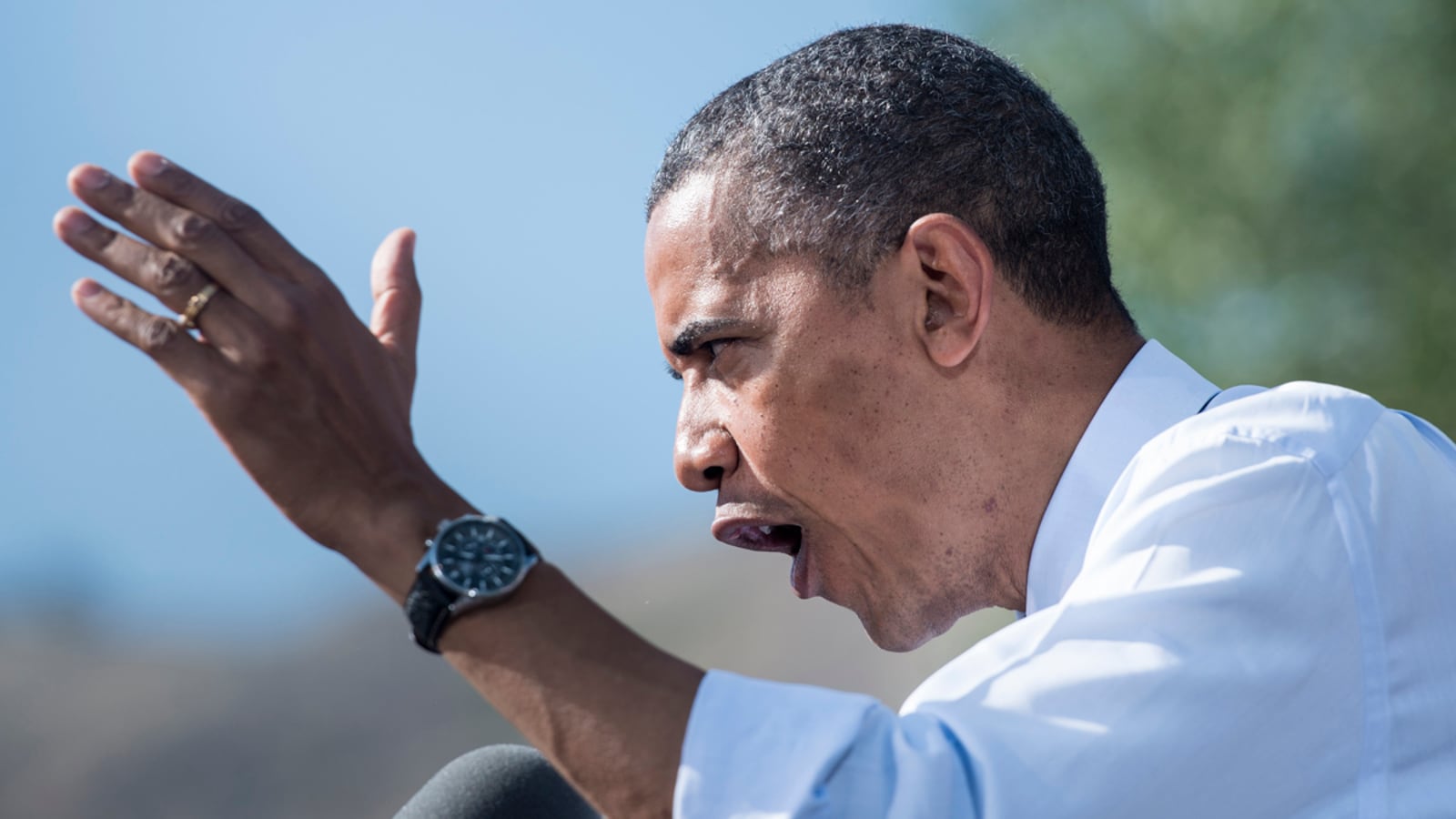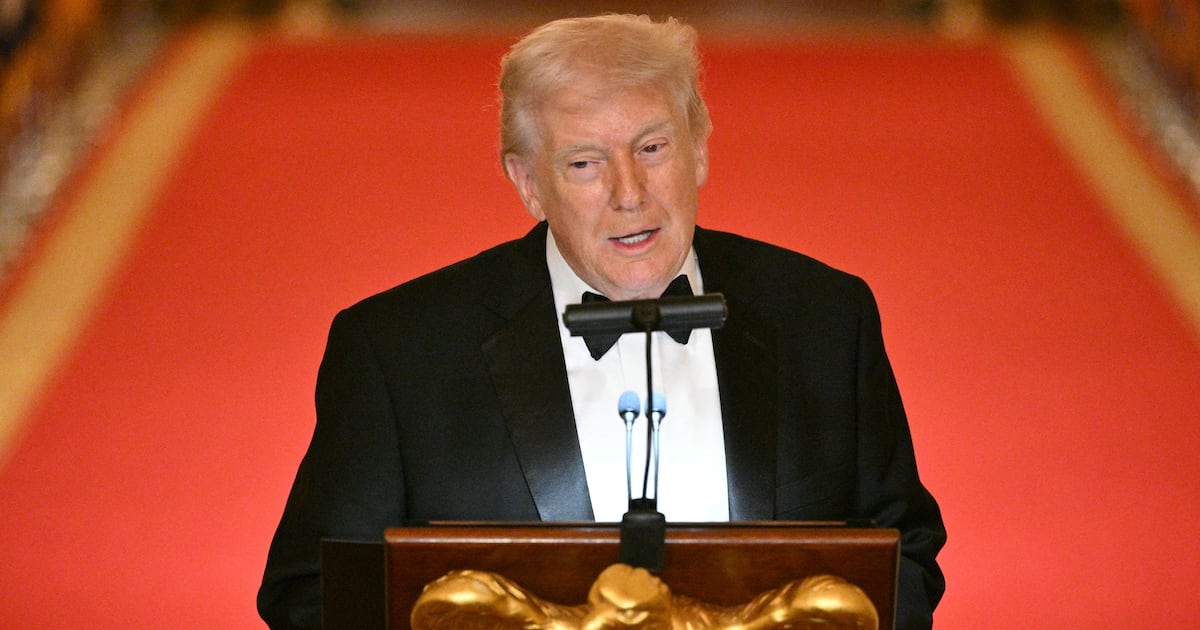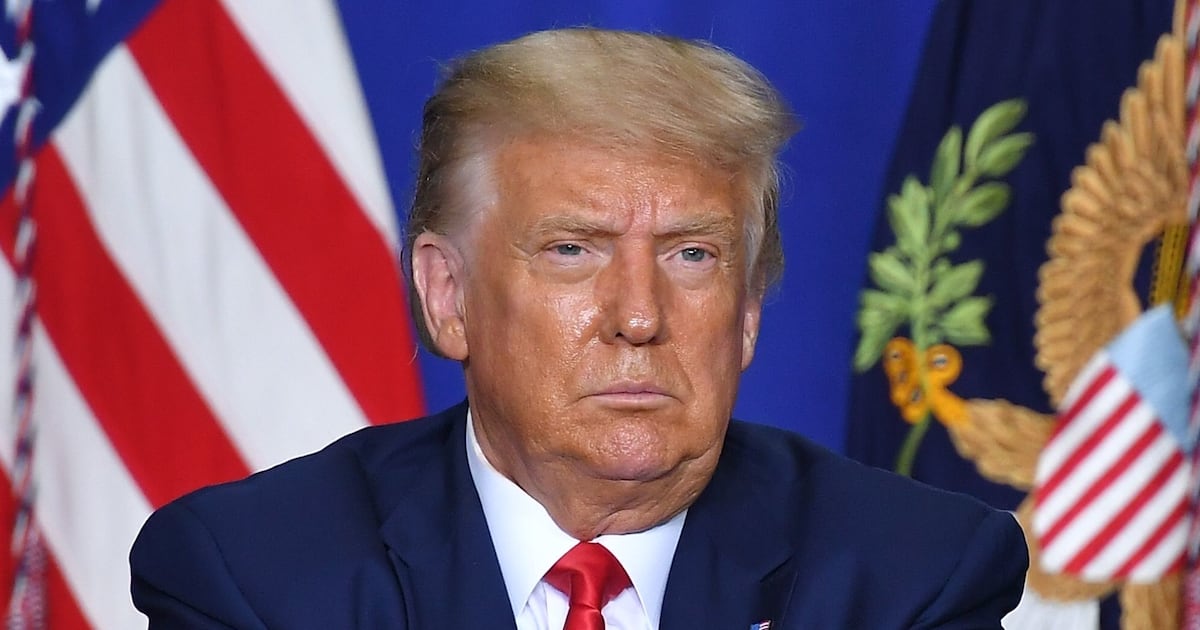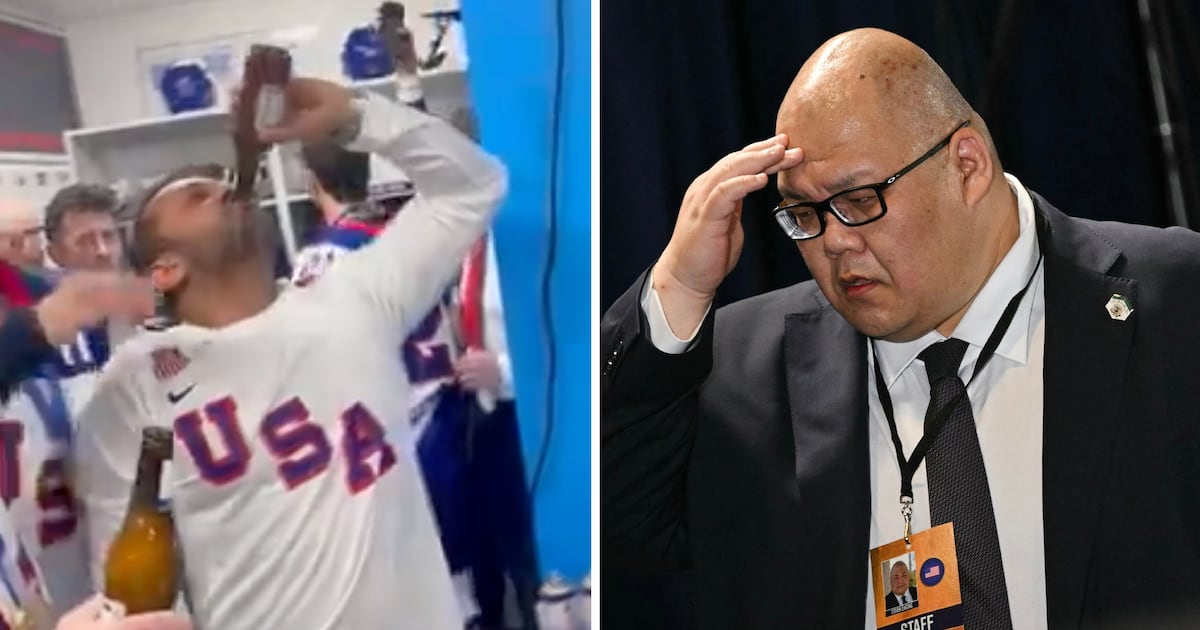President Obama’s strategists are convinced that the overseas attacks on U.S. diplomats are a major break for his campaign—as long as they are not viewed as politicizing the crisis.

They are leaving the criticism of Mitt Romney’s late-night slam against the administration, before the deaths of four Americans in Libya were confirmed, to high-profile surrogates.
“I got the feeling that Romney didn’t have the facts and didn’t focus on the gravity of what he was saying,” former secretary of state Madeleine Albright said in an interview. “He just took a political shot without knowing what was going on.” Obama, says Albright, “knows how to deal with a crisis. I have a sense that Governor Romney doesn’t.”
The Romney campaign, by contrast, views the Middle East violence as providing an opening for a broader argument. It centers not just on the longtime conservative refrain that Obama is apologizing for America, but in framing the notion that the president is losing control of events.
“Some voters will believe the response wasn’t strong enough,” Romney spokesman Kevin Madden tells me. “This fits into an anxiety about the lack of leadership on the home front as well.”
Alex Castellanos, a former Romney adviser, puts it in stronger terms: “The real debate is whether the weakness and vacillation evidenced by the Obama administration has emboldened our enemies and adversaries and precipitated these kinds of attacks.
Stripped to their essence, these are pretty raw attacks. The Romney side is saying that Obama’s policies are somehow responsible for the deaths of four Americans. The Obama team is saying that Romney lost his cool in an international crisis.
The stakes are that high. Romney has focused his campaign overwhelmingly on the economy, but voters are acutely aware that world trouble spots can erupt at any time. Romney has a foreign-affairs threshold to pass in a way that a president who brought Osama bin Laden to justice simply doesn’t.
Even Castellanos concedes a “tremendous opportunity” for the president.
“Clearly, foreign policy is an Obama strength,” the Republican consultant says. “In stormy seas, people tend to cling to the life raft they’re on. When you’re commander in chief, you can always dominate an event like this, display calm and strength, and this election is about those kinds of things.”
An administration official who declined to be identified echoed that theme. In the attacks in Libya and Egypt, this person says, voters “saw a president who acted like a statesman, who consoled those in the State Department who desperately needed to hear it, and made clear that those who perpetrated this will be held accountable.”
As if to underscore his hands-on role, Obama on Thursday called the president of Yemen, where the U.S. embassy was attacked, just as he consulted with the leaders of Egypt and Libya a day earlier.
Romney continued to defend his Tuesday night remarks denouncing an initial statement from the U.S. Embassy in Cairo.
That statement, in response to a crude anti-Muslim Web video that apparently sparked the riots, said the embassy “condemns the continuing efforts by misguided individuals to hurt the religious feelings of Muslims.”
“What I said was exactly the same conclusion the White House reached, which was that the statement was inappropriate,” he told ABC News Thursday. “That’s why they backed away from it as well.”
Romney advisers say the intense focus on their man’s quick-trigger response is misguided.
“The media was much quicker to judge the process part of it and not as quick to investigate the substance involved with what was taking place,” says Madden, Romney’s spokesman. “We had a statement of policy from the administration sitting out there for 12 to 14 hours but no word yet from the White House to disavow that response. It’s a legitimate question whether we were sending mixed messages.”
But fresh reporting indicates that the initial embassy statement was not released as a response to the attacks. According to Foreign Policy magazine, it was written by Cairo senior public affairs officer Larry Schwartz and issued at 12:18 a.m. Egypt time (6:18 a.m. in Washington)—well before the protests began. Thus, what came to be viewed as an apologetic answer to violence against U.S. diplomats was an attempt to calm the atmosphere before the riots began.
“Most of us who have been in government have a rule: the first information that comes in is usually wrong, or partial,” Albright says. “Governor Romney was operating without full knowledge of what was going on.”
Just as the Romney camp is using the tragedy to cast the president as ineffective, Obama advisers are trying to paint their rival as a neophyte who insulted the British during the Olympics and has been vague about Afghanistan and other global issues.
“On his foreign trip, we saw how Romney would perform on the world stage,” an Obama campaign official says. “He alienated our closest ally. To seize any sort of foreign policy momentum, Governor Romney has to outline a policy for America’s relations with any single region of the world.”
Still, there are substantial risks for Obama in the way the volatile situation is playing out.
If there is continued violence targeted at U.S. embassies overseas, the administration could begin to look weak. The country briefly rallied behind Jimmy Carter when Iranians took embassy hostages in 1979, but over time the perception of powerlessness contributed to Ronald Reagan’s victory.
Obama advisers also say they face a double-barreled communications challenge: to condemn any violence aimed at Americans abroad while also disavowing anti-Muslim propaganda as the product of a fringe element.
Every campaign has its unexpected moment of truth. For John McCain, it was the financial meltdown that probably handed the election to Obama. How voters view the latest surge in anti-American violence, and the responses by each candidate, could have a measurable effect on the November outcome.






